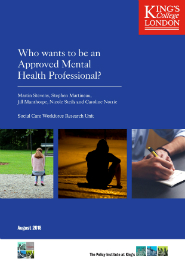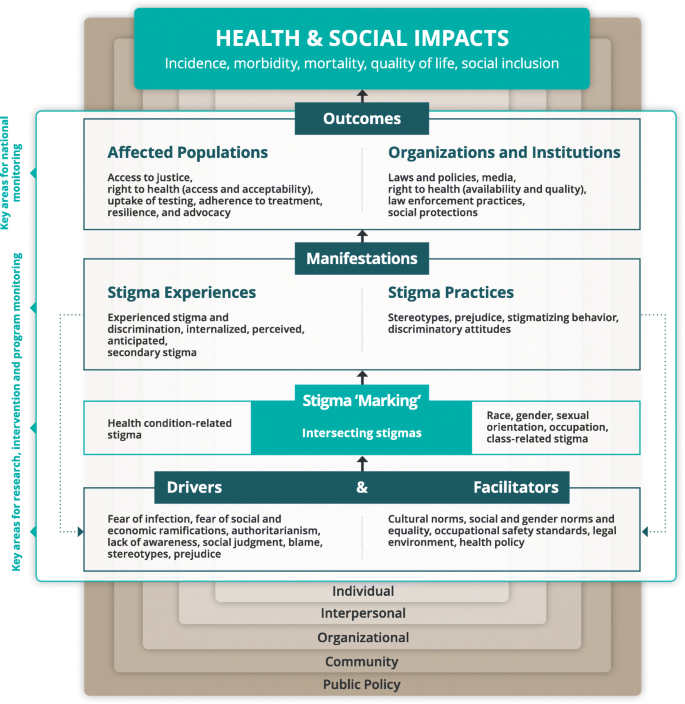Find this resource: Steele, C. M., & Aronson, J. (1995 ). Stereotype risk and the intellectual test efficiency of African Americans. Journal of Character and Social Psychology, 69( 5 ), 797811. Find this resource: Stryker, S. (1980 ). Symbolic interactionism: A social structural variation. San Francisco, CA: Benjamin/Cummings. Discover this resource: Substance Abuse and Mental Health Providers Administration, Center for Behavioral Health Data and Quality.
The NSDUH report: Cigarette smoking and psychological illness. Rockville, MD: Author. Find this resource: Sullivan, P. F. (1995 ). Death in anorexia nervosa. American Journal of Psychiatry, 152( 7 ), 10731074. Find this resource: Thoits, P. A. (1985 ). Self-labeling procedures in mental disease: The role of psychological deviance. American Journal of Sociology, 91, 221249.
A. (2010 ). Tension and health significant findings and policy implications. Journal of Health and Social Behavior, 51( 1 Suppl.), S41S53. Find this resource: Turner, R. J., Wheaton, B., & Lloyd, D. A. (1995 ). The epidemiology of social tension. American Sociological Evaluation, 60, 104125. Discover this resource: Vancampfort, D., Vansteelandt, K., Correll, C.
The smart Trick of How Does Childhood Abuse Affect Mental Behavior That Nobody is Discussing
J., De Herdt, A., Sienaert, P.,. De Hert, M. (2013 ). Metabolic syndrome and metabolic irregularities in bipolar illness: A meta-analysis of https://rivercountry.newschannelnebraska.com/story/42141829/addiction-treatment-center-in-miami-educates-community-about-drug-rehab prevalence rates and moderators. American Journal of Psychiatry, 170, 265274. Discover this resource: Wahl, O. F. (1995 ). Media madness. New Brunswick, NJ: Rutgers University Press. Find this resource: Wahl, O (how does adhd affect the mental process).
( 1999 ). Mental health customers' experience of stigma. Schizophrenia Bulletin, 25( 3 ), 467478. Discover this resource: Walker, E. R., McGee, R. E., & Druss, B. G. (2015 ). Mortality in mental illness and global illness problem ramifications: An organized evaluation and meta-analysis. JAMA Psychiatry, 72( 4 ), 334341. Discover this resource: Whatley, C. D. (1959 ).

Social Issues, 6( 4 ), 313320. Find this resource: Wright, E. R., Gronfein, W. P., & Owens, T. J. (2000 ). Deinstitutionalization, social rejection, and the self-confidence of previous mental patients. Journal of Health and Social Habits, 41, 6890. Find this resource: Xiong, G. L., Bermudes, R. A., Torres, S. N., & Hales, R.
The How Do Genes Affect Mental Illness Examples PDFs
( 2008 ). Use of cancer-screening services amongst individuals with severe mental disorder in Sacramento County. Psychiatric Providers, 59( 8 ), 929932. Discover this resource: Yarrow, M. R., Schwartz, C. G., Murphy, H. S., & Deasy, L. C. (1955 ). The psychological significance of mental health problem in the family. Journal of Social Issues, 11( 4 ), 1224. (p.
Mental disorder, stigmatization, discrimination, help-seeking Researchers commonly suggest that the preconception attached to mental health problem is one of the major confounding consider aid looking for from mental health professionals. Mental disorders are medical conditions that interfere with a person's thinking, sensation, mood, ability to relate to others, and everyday functioning [1].
There are a number of unique constructs that make up preconception. These consist of stereotype, prejudice, and discrimination. A stereotype is a belief held about a specific group of individuals. For instance, believing that all individuals with an identified mental disorder are harmful is a stereotype. Prejudice is an agreement with the stated stereotype that results in an unfavorable psychological reaction [4].
How How Does Tv Affect A Child Mental Development can Save You Time, Stress, and Money.
An example of prejudice might be agreeing that persons with psychological disease are indeed hazardous, causing a psychological reaction such as worry or anger. Discrimination is the behavioral reaction to prejudice, which may include, for instance, preventing a person with mental disorder since of the fear from the bias and the belief that the person threatens [4].
Individuals with mental health problem were believed to be mentally retarded, a public nuisance, and unsafe. Less than half of the individuals believed that such people might be treated beyond a hospital and just 25% believed that they might work routine jobs. Poor understanding about mental disorder also prevailed among the individuals.
Just 17% reported that they might keep a friendship with a person with a psychological illness. The authors concluded that there is poor understanding about the cause and nature of mental disorder and that education is required so that preconception towards those with a mental disorder can reduce [6] Preconception is specified as a mix of viewed dangerousness and social range.
Excitement About How Does Drug Affect Your Mental Health
Wherever they go, whatever they do, the pressures of complying with a society that neither accepts nor comprehends them can be frustrating. The impact of preconception need to appear to be as tough to overcome as the direct effects of the disease itself [7] Only by completely understanding the origins of stigma can society's views towards individuals with psychological illness be changed.
These people are likewise believed to be extremely unsafe by others in society [8] During the primitive age, mental disorder was straight connected to religious beliefs. Hinshaw and Cicchetti 9 mentioned that dating back 500,000 years individuals put circular holes in the skulls of individuals believed to have a mental disorder in order to let the wicked spirits out.
In the early Greek times the supernatural beliefs considered causes for psychological health problem continued [10] In ancient Greece "Hippocrates believed that irregular behavior originated from internal bodily causes, particularly imbalances of the four fundamental fluids https://www.wrde.com/story/42268615/addiction-treatment-center-offers-guidance-on-selecting-the-right-rehab-center (yellow bile, black bile, phlegm, and blood) [9]. Hippocrates likewise thought that the brain was responsible for mental and psychological functions.
An Unbiased View of How Does Mental Illness Affect People
Society utilized exorcisms, abuse, death by fire, and starvation to rid the person of evil. Hospitals for the crazy began to establish in the 16th century. The treatment in these asylums was terrible and inhumane [9] The worry of people with mental disorders in other places made the variety of asylums increase.
Pinel demanded the elimination of chains on inmates in asylums. He thought that doctors ought to deal with people with mental disorders [11] The early 20th century consisted of a boost in beliefs of a biological basis for mental disorder, which Hinshaw and Cicchetti [9] discussed. The Psychological Health motion, which motivated the gentle treatment of people identified with psychological diseases, was founded in 1908 [11,12].
The 2nd half of the 20th century focused on enhancing psychotropic medications and battling stigmas [9] These treatments all stem from the biological design that was primary during this period of history. Deinstitutionalization, a time period when asylums and organizations were closed and clients were moved into the neighborhood, gained attention in the 1960's [9].

How Does Eating Healthy Affect Your Mental Health Fundamentals Explained
The usage of medications to treat mental health problems triggered a drop in the number of clients in mental hospitals. Although there were many benefits to the deinstitutionalization procedure, a significant issue with this motion is that a lot of the clients were not prepared to work separately in the community due to the fact that they had resided in institutions for most of their lives.
They were avoided by the general population and often needed to rely on criminal activity in order to support themselves. At this time, the federal government mandated making use of neighborhood mental health centers. By creating centers of care for the psychologically ill, it was thought that they would have a better chance of becoming acclimated into a typical role in society.
As of today there is not one appropriate approach of treatment nor is any one type the basic [10] Treatment, however, will not stop the forces of misinformation that lead to the creation of stigma [9] In order to comprehend the relationship in between stigma and mental disorder, the origins of stigma need to be specified.